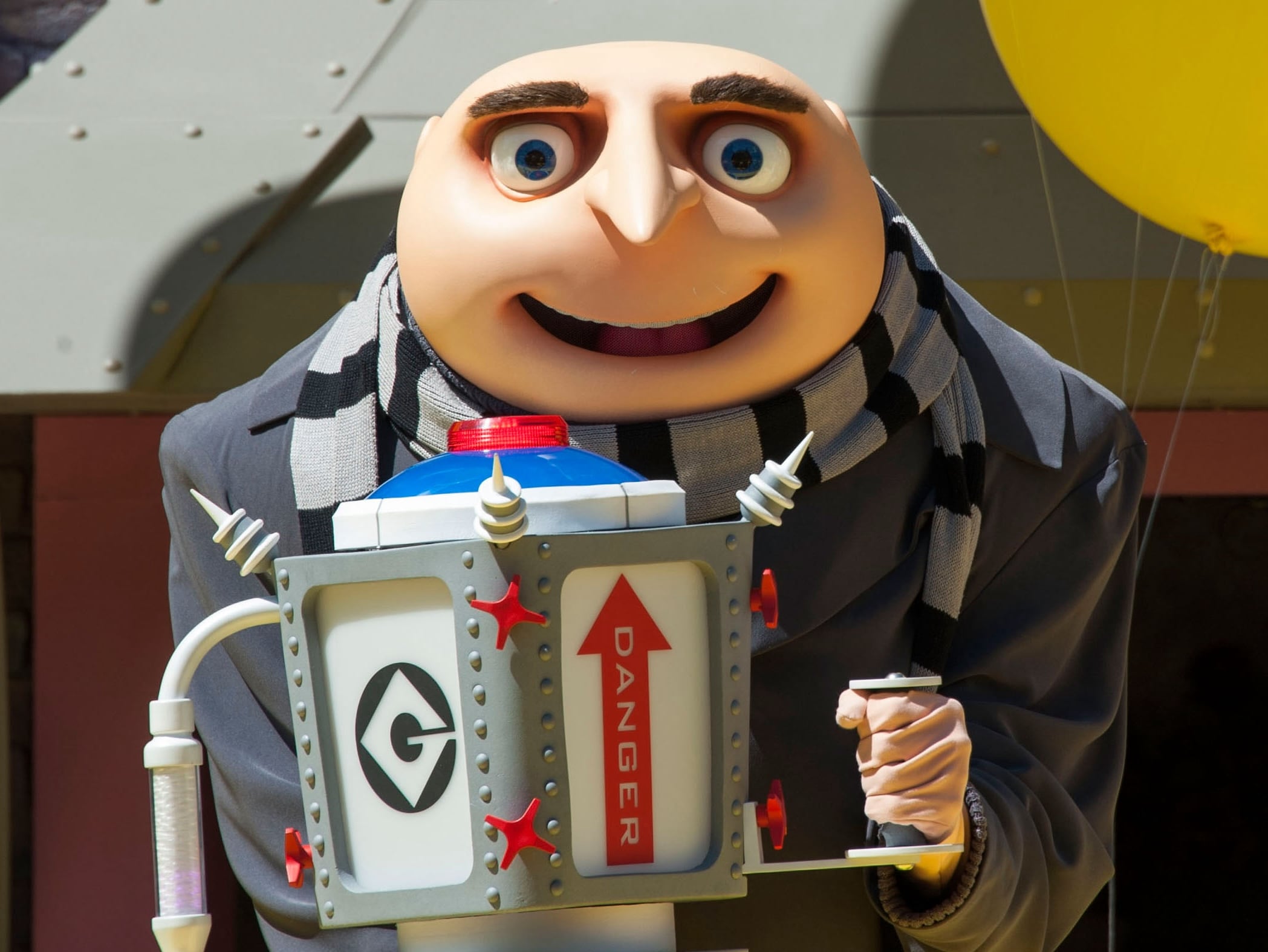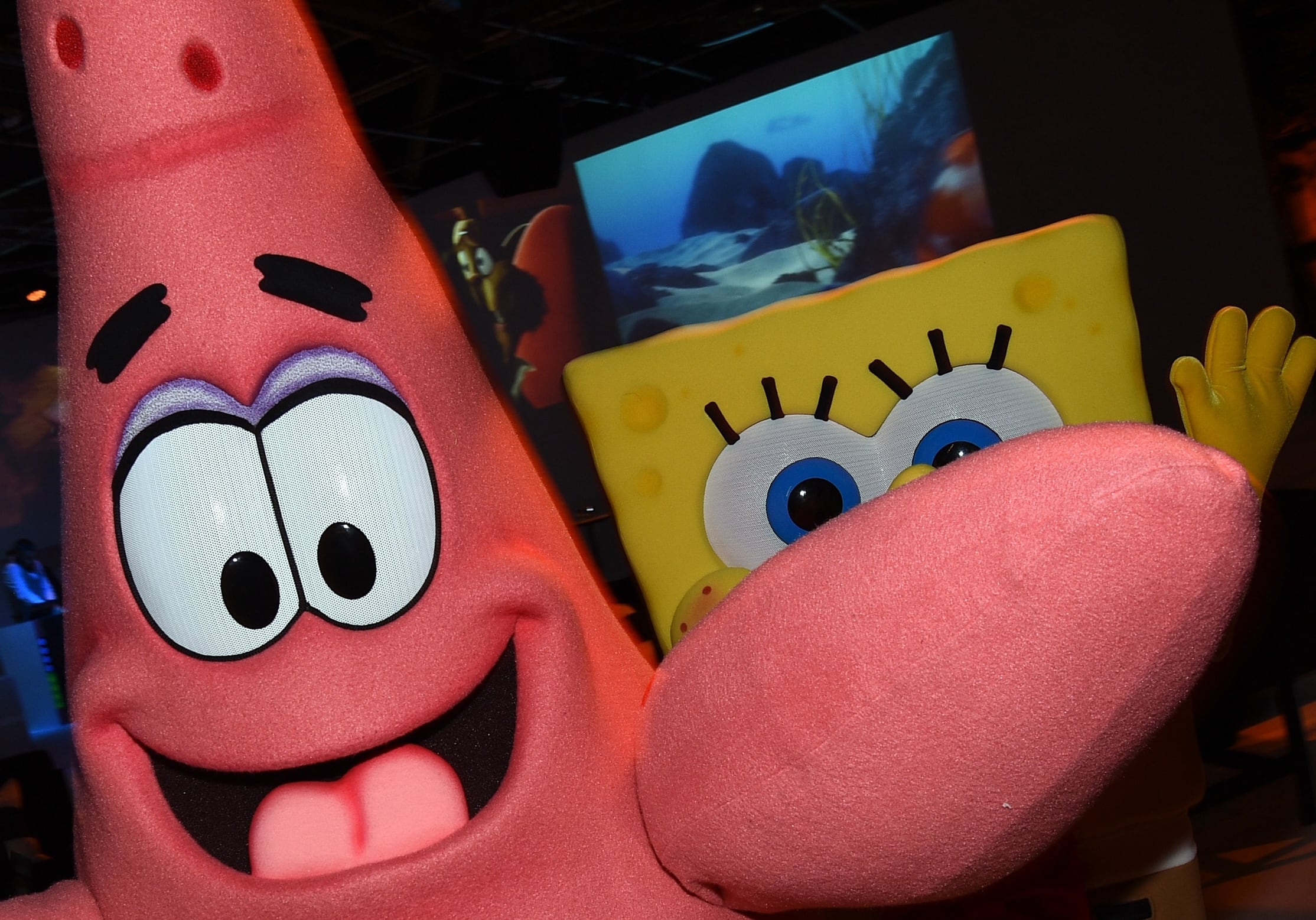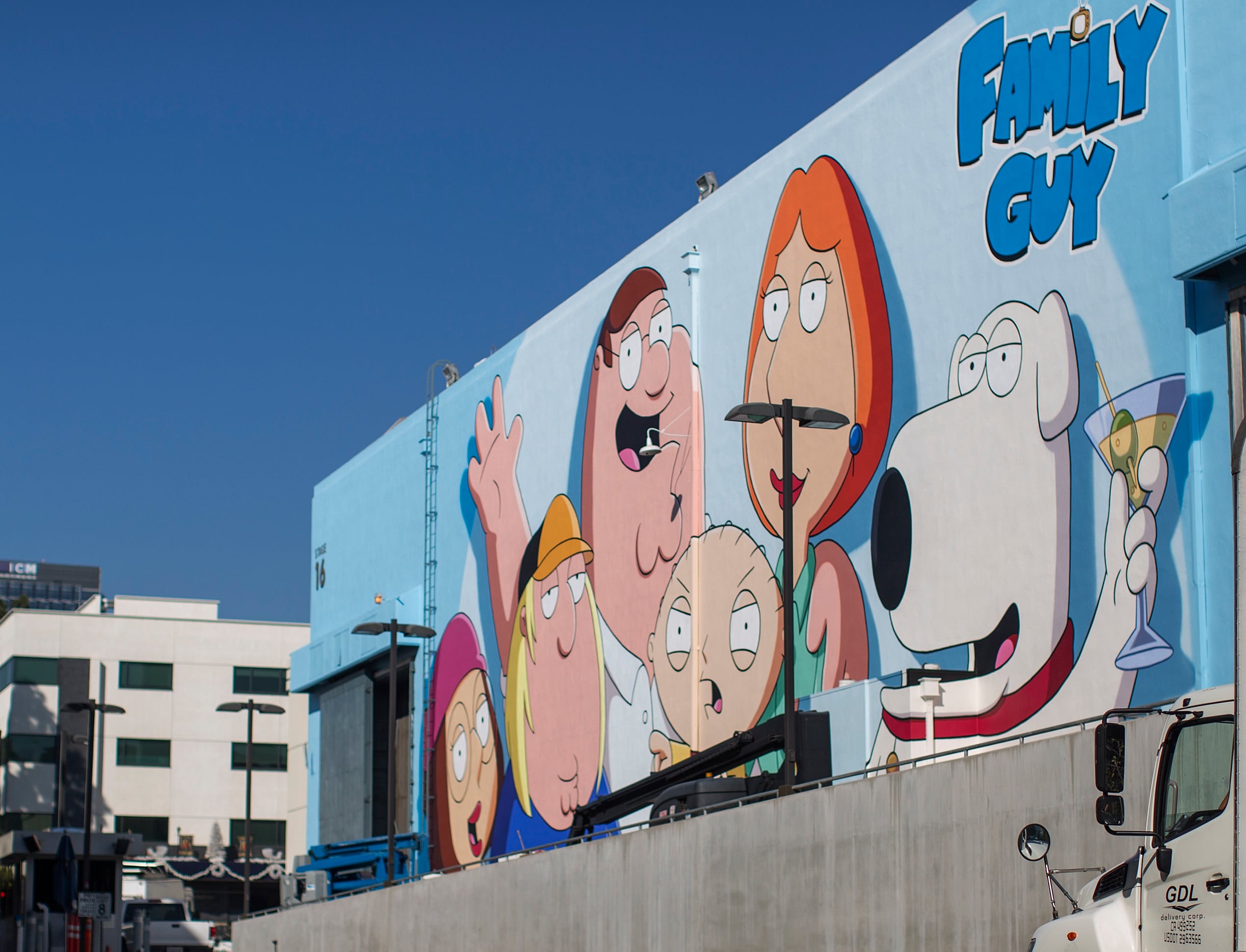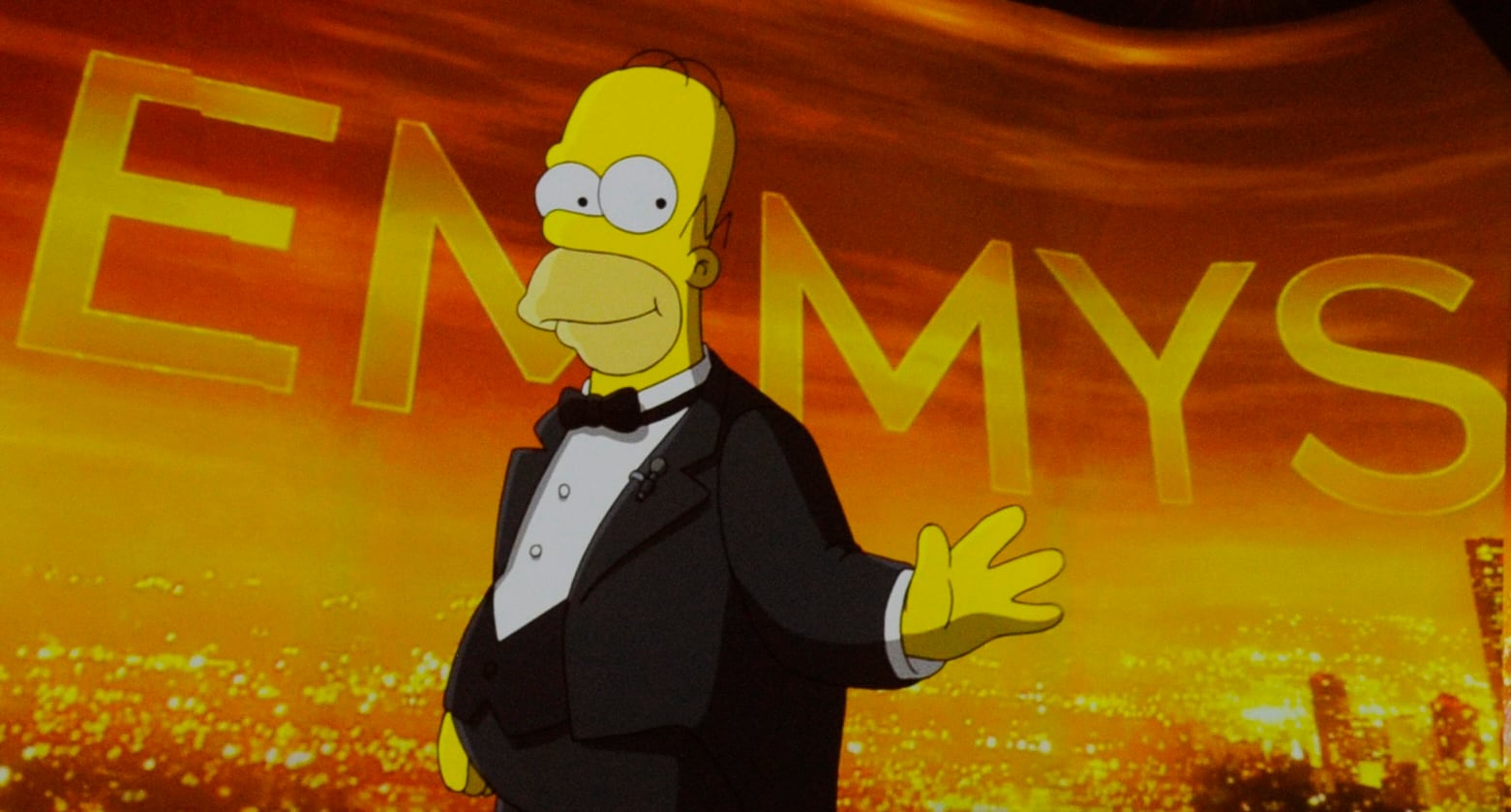Editor’s note: This story was first published on June 6, 2023.
Each year, military movies’ inclusion among the year’s best cinematic achievements at the Academy Awards attract attention. There is an abundance of critically acclaimed wartime movies that have stood the test of time. But what makes such a movie endure?
The universal language of shared experiences portrayed, for one. Many films over the years have accomplished as much, highlighting the human side of wearing the uniform through stories that span edge-of-your-seat military thrillers and the sort of tedious boredom only military life can elicit.
And while compiling a list of all may be downright impossible, here are a few dozen we feel do it best.
Saving Private Ryan (1998)
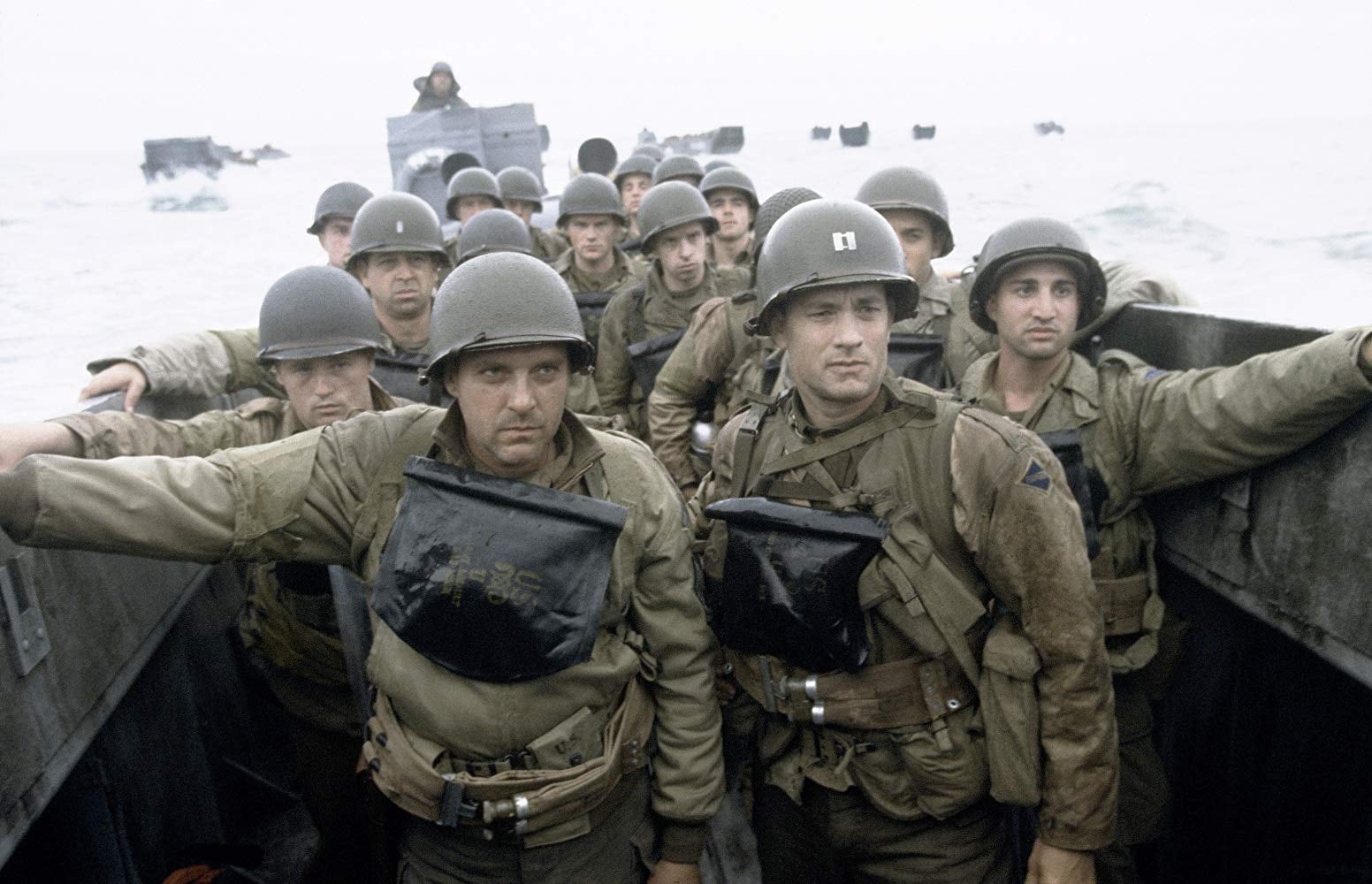
The film opens with one of the most harrowing scenes in cinema history, as Allied troops storm the beaches at Normandy on June 6, 1944. Capt. John Miller, played by Tom Hanks in one of his best roles, sets off to find Pvt. James Ryan (Matt Damon) in enemy territory. Three Ryan brothers were killed in combat. Miller’s mission is find and send home the fourth.
Das Boot (1981)
Considered by many to be one of the greatest war films ever made, Wolfgang Peterson’s “Das Boot” is a thrilling account of a German U-boat operating in the North Atlantic during World War II. The film captures both the claustrophobic boredom faced by young submariners and the terrors of the dark, expansive unknown in which the inexperienced crew must operate.
Casablanca (1942)
Timely released during World War II yet timeless in its appeal, “Casablanca” remains a definitive classic in the romance-drama genre. Humphrey Bogart, Ingrid Bergman and Paul Henreid star in this authoritative love story about an American expatriate torn between his affections for a woman and his moral obligation to assist her husband in his defiance of the Nazis and escape from Vichy-controlled territory.
Thin Red Line (1998)
Based on the World War II autobiography by James Jones, “Thin Red Line” centers on an AWOL Pvt. Witt (Jim Caviezel), who is dragged back into the line of duty by Sgt. Welsh (Sean Penn). Set amid the Battle of Guadalcanal, the film hones in on the existential crises faced by men in combat.
1917 (2019)
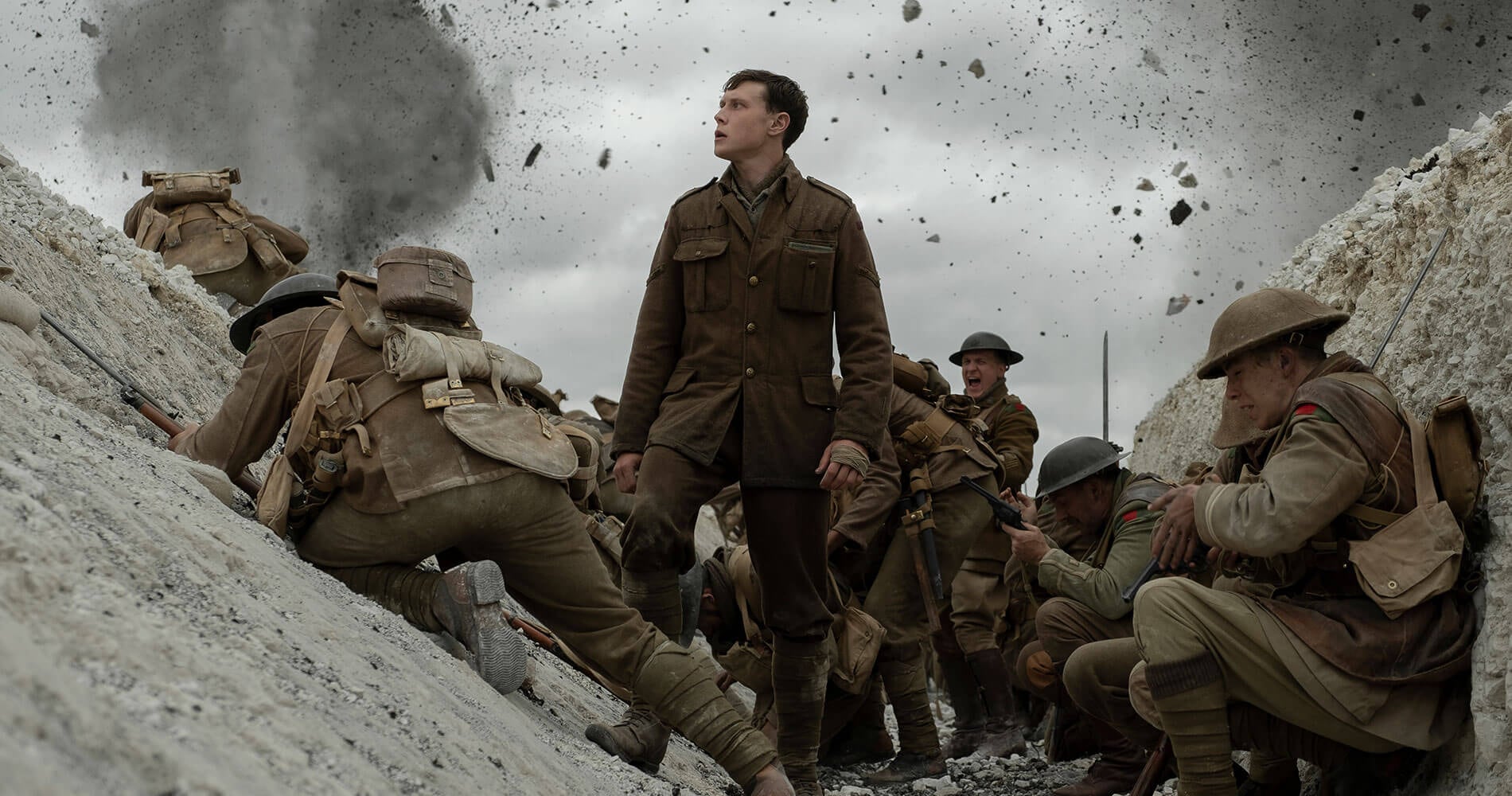
Filmed as a single continuous shot, Sam Mendes’ “1917″ is an absolutely marvelous look at the everyman soldier of World War I. Similar to “Saving Private Ryan” it involves an attempt to save a British soldier’s brother from a battle predicted to be a slaughter. The cast and crew offer up one scene after another that, despite depicting a story a century old, resonate with any era of veteran.
All Quiet on the Western Front (1930 and 2022)
Based on a book of the same name by Erich Maria Remarque, “All Quiet on the Western Front” has undergone multiple well-received big-screen adaptations. Both the 1930 and 2022 versions are critically acclaimed and worth the watch, and both, each harrowing in their own right, do justice to the idea that war is hell for those who see it face to face.
The Deer Hunter (1978)
An emotionally shattering movie, “The Deer Hunter” centers on three friends who ship off to fight in the Vietnam War. Incredible performances from Robert De Niro, John Savage and Christopher Walken enhance the film’s subtle anti-war commentary. Post-war scenes also show the struggles of returning home after being changed by combat.
Apocalypse Now (1979)
Perhaps one of the more avant-garde of the war films, “Apocalypse Now” has become something of a cult classic. Directed by Francis Ford Coppola, the Vietnam War movie is based loosely on Joseph Conrad’s “Heart of Darkness.” At its core, the film explores war as an exercise in futility and a catalyst for a descent into madness.
The Best Years of Our Lives (1946)
Set in the immediate aftermath of WWII, “The Best Years of Our Lives” depicts the struggles of three veterans as they return home and grapple with the rhythms of civilian life. Veterans of any war will see their own experiences — notably, the perpetual disconnect between war veterans and those who send them to fight — play out in this timeless film directed by Oscar-winner William Wyler (“Ben Hur,” “The Memphis Bell”).
Full Metal Jacket (1987)
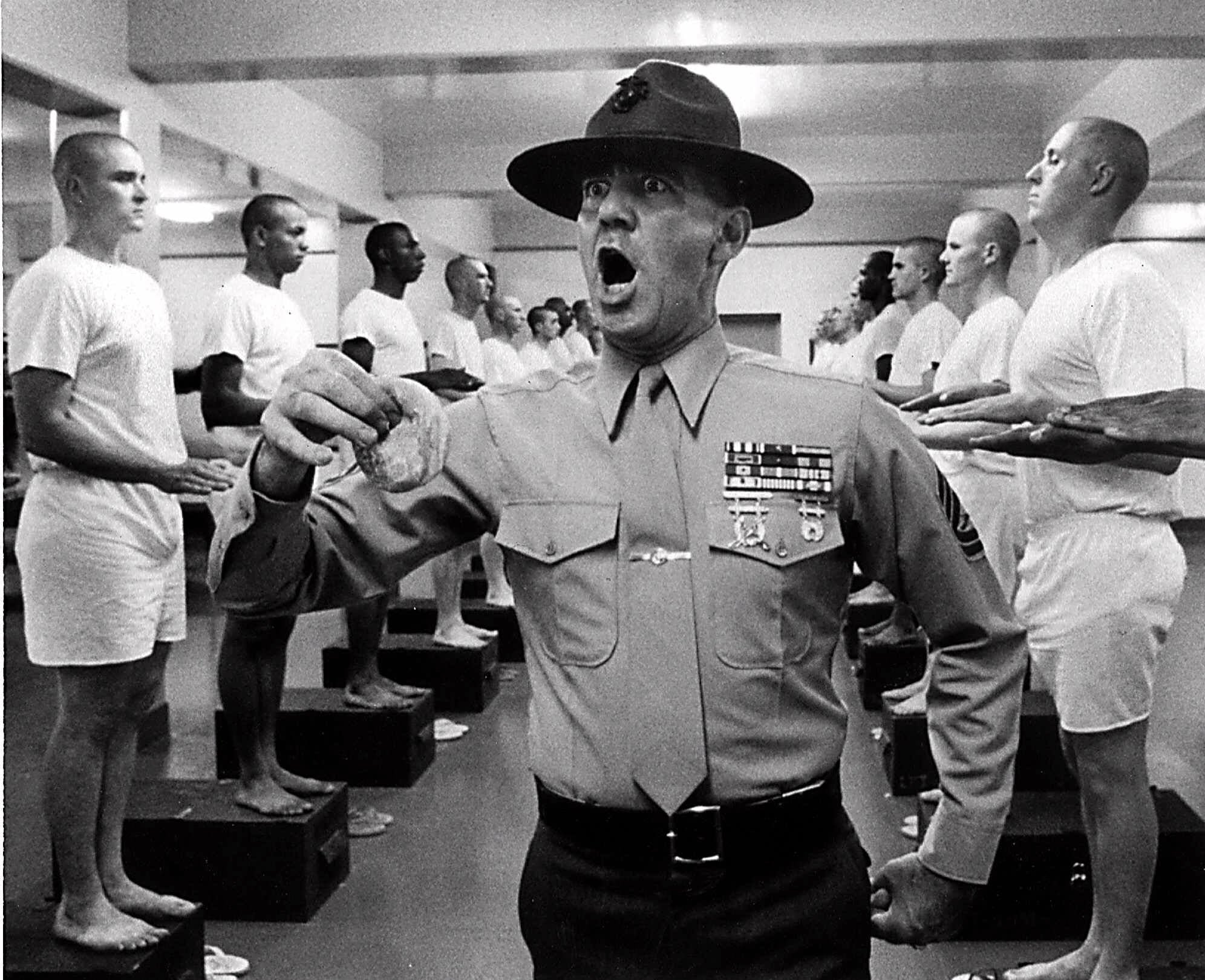
Best known for its boot camp scenes featuring R. Lee Ermey, this Vietnam War film has become a mainstay in military movie culture. Directed by Stanley Kubrick, “Full Metal Jacket” is anchored by the trajectory of James T. “Joker” Davis (Matthew Modine) from boot camp to his deployment during the Tet Offensive.
Platoon (1986)
Oliver Stone’s “Platoon” delivered Oscars for Best Picture and Best Director, cementing its status as an authoritative Vietnam War film. The story, delivered with narrative that provides compassion in the midst of human depravity, gets to our core as human beings as only tribulations of war can.
Land of Mine (2015)
“Land of Mine” tells an emotional story of young German prisoners of war who, while under Danish control in post-WWII Denmark, are tasked with de-mining the countryside with their bare hands. The brutality of the endeavor begins a painful reflection of one’s capacity for forgiveness.
Rescue Dawn (2006)
German-American Dieter Dengler (Christian Bale) was a U.S. Navy pilot shot down near the Ho Chi Minh Trail in 1966. Tortured for months and emaciated, Dengler eventually escaped his captors, fleeing into dense jungle and evading capture for over three weeks before being rescued by U.S. forces. Bale’s spectacular performance brings relatability to the most dire situation.
Black Hawk Down (2001)
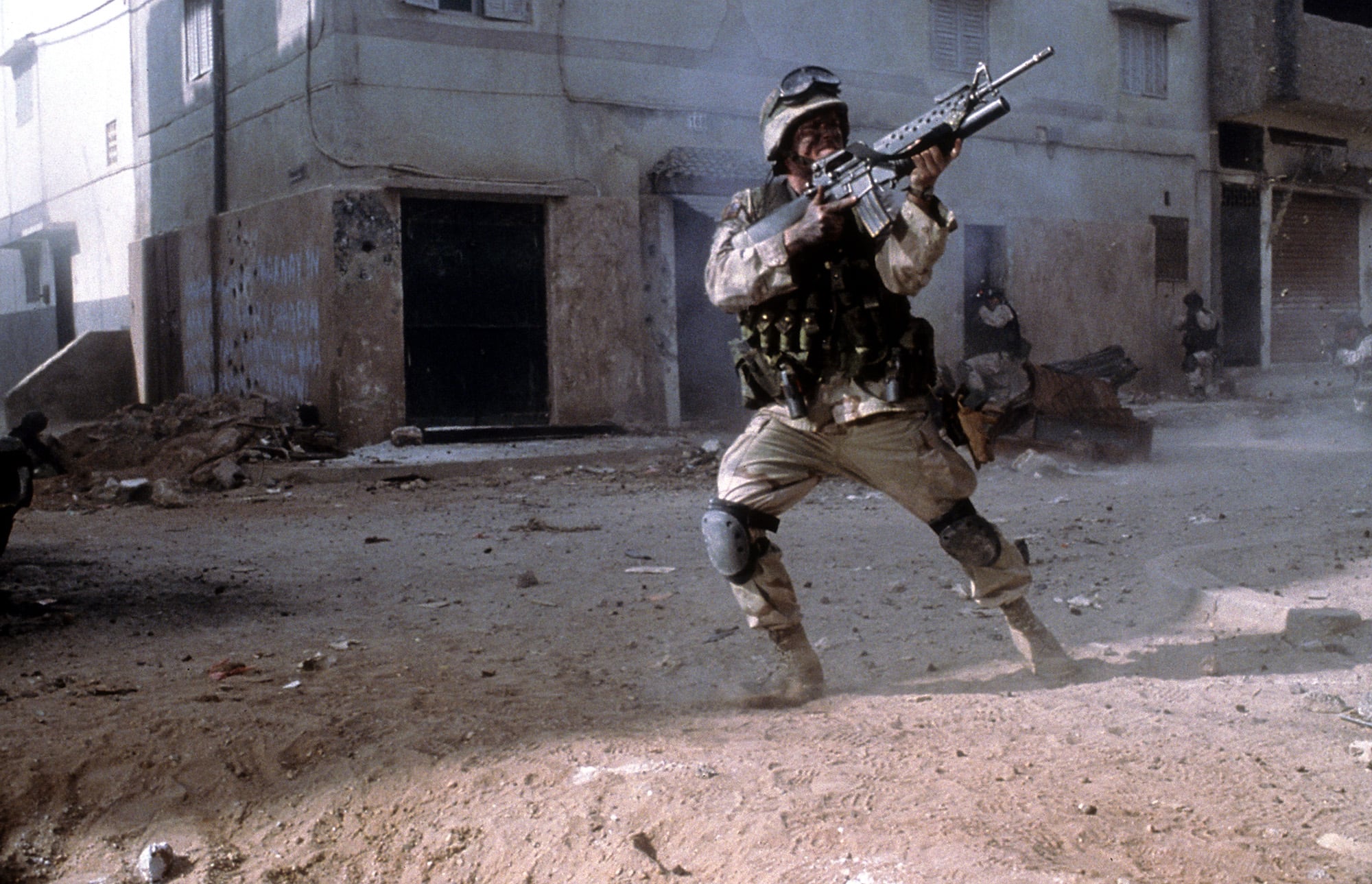
A film about the disastrous October 1993 attempt by U.S. Special Forces to bring down a Somali warlord’s top lieutenants, “Black Hawk Down” remains one of the best portrayals of the chaos of urban warfare. Director Ridley Scott’s depiction of the Battle of Mogadishu, which resulted in 18 American casualties, is further enhanced by stellar performances by Eric Bana and Josh Hartnett.
The Imitation Game (2014)
Benedict Cumberbatch delivers an incredible performance as Alan Turing in this fact-based story about a small team of MI6 recruits who crack the Nazi code Enigma — once thought unbreakable. The film weaves between Turing’s wartime accomplishments and his eventual imprisonment in England, where his homosexuality was deemed a criminal offense at the time. The brilliant mathematician was posthumously pardoned and chosen as the face of Britain’s £50 note.
Schindler’s List (1993)
Steven Spielberg navigates human brutality and compassion in this authoritative adaptation of the life of Oskar Schindler, a German businessman (Liam Neeson) who arrives in Krakow in 1939 and begins staffing his factory with Jewish workers — even as Nazi SS troops seek them out for extermination. The real-life Schindler was credited with saving the lives of approximately 1,200 Jewish people.
Dunkirk (2017)
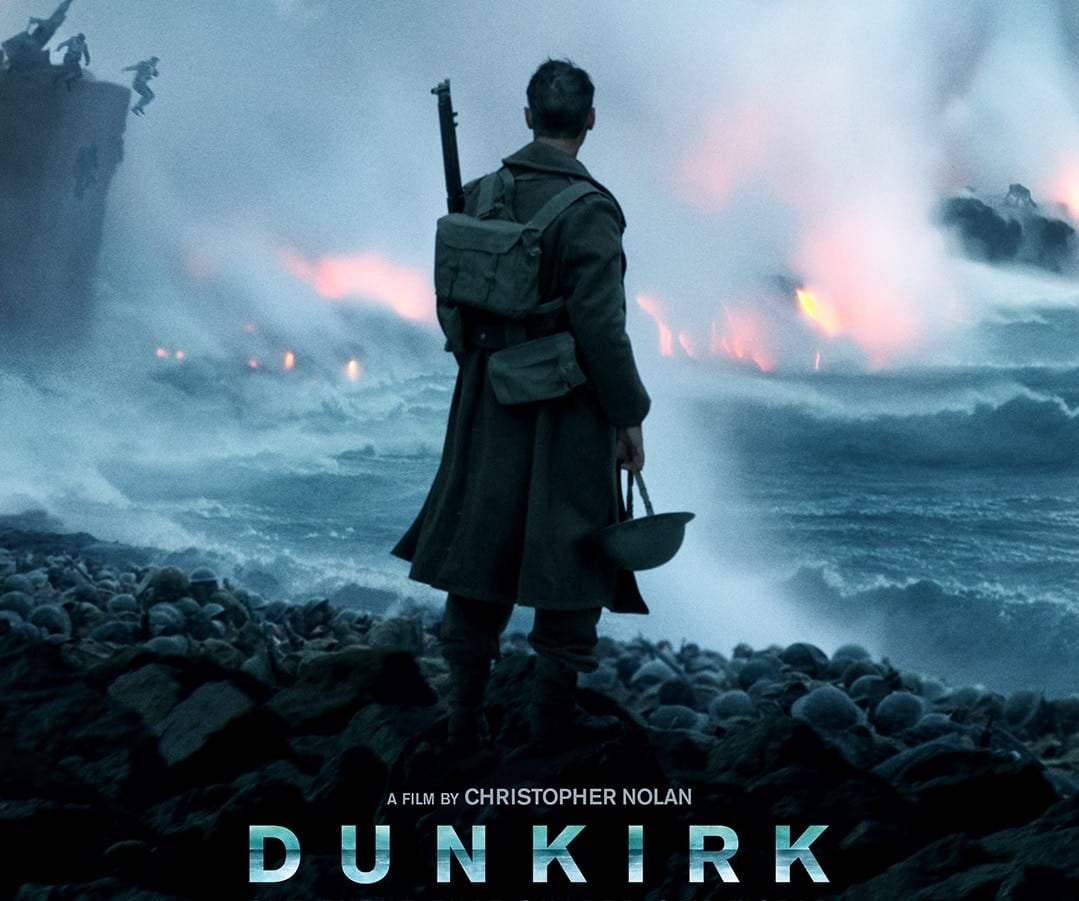
A stunningly immersive Christopher Nolan film that weaves between three separate timelines spanning the same event, “Dunkirk” delivers a tense character study with one of the most incredible evacuations in war history as its stage. Only once you reach the end can you fully understand the depth of this rich story.
Life is Beautiful (1997)
A young Jewish-Italian family are separated when they are taken to a concentration camp during World War II. Amid the incessant horrors of life in the camp, the father, played by Roberto Benigni, does everything in his power to protect his son’s innocence, sheltering the child from horrors while convincing him their time in one of the ugliest situations in human history is just part of a game.
The Pianist (2002)
In the adaptation of Polish pianist Wladyslaw Szpilman’s autobiography, actor Adrien Brody plays a Jewish pianist separated from his family in war-torn Warsaw. Szpilman hides among the city’s ruins at the outset of World War II, eventually joining the Warsaw Ghetto Uprising efforts before remaining hidden with the help of a German soldier. The film earned director Roman Polanski and Brody Academy Awards for best director and best actor, respectively.
Patton (1970)
Gen. George Patton remains of the most polarizing military tacticians in history. The film, written in part by Francis Ford Coppola, chronicles his career throughout World War II — from his many triumphs to his notable foibles — for a fascinating look at one of war history’s more controversial figures.
Gallipoli (1981)
A young Mel Gibson stars as an Australian sprinter who joins the army during World War I. He and his companion, another runner, are eventually sent to the front lines as messengers in one of the war’s most devastating battles. Directed by Peter Weir, who was also at the reins for “Master and Commander,” “Gallipoli” remains a leading anti-war film.
Gone with the Wind (1939)
Based on the 1936 novel of the same name by Margaret Mitchell and considered one of the most epic films ever made — not just in war cinema — “Gone with the Wind” is a fictional Civil War account detailing the scourge felt by southerners in the wake of America’s bloodiest conflict. The war backdrop, meanwhile, serves as the underpinning of one of the greatest love stories in cinema history.
Lawrence of Arabia (1962)
David Lean directed “The Bridge on the River Kwai” in 1957 and “Doctor Zhivago” in 1965. Sandwiched between those masterpieces is the epic, nearly four-hour tale based on the First World War exploits of British Lieutenant T.E. Lawrence (Peter O’Toole). Quarrels abound between British and Arab forces as Lawrence embarks on a seemingly impossible quest in an unforgiving landscape mired in conflict.
The Great Escape (1963)
Steve McQueen, James Garner and Richard Attenborough star in this thrilling World War II story about an allied escape from a German prisoner-of-war camp. Directed by John Sturges (“The Magnificent Seven”), the story is loosely based on the mass escape by British WWII soldiers from the Stalag Luft III prison camp.
Inglourious Basterds (2009)
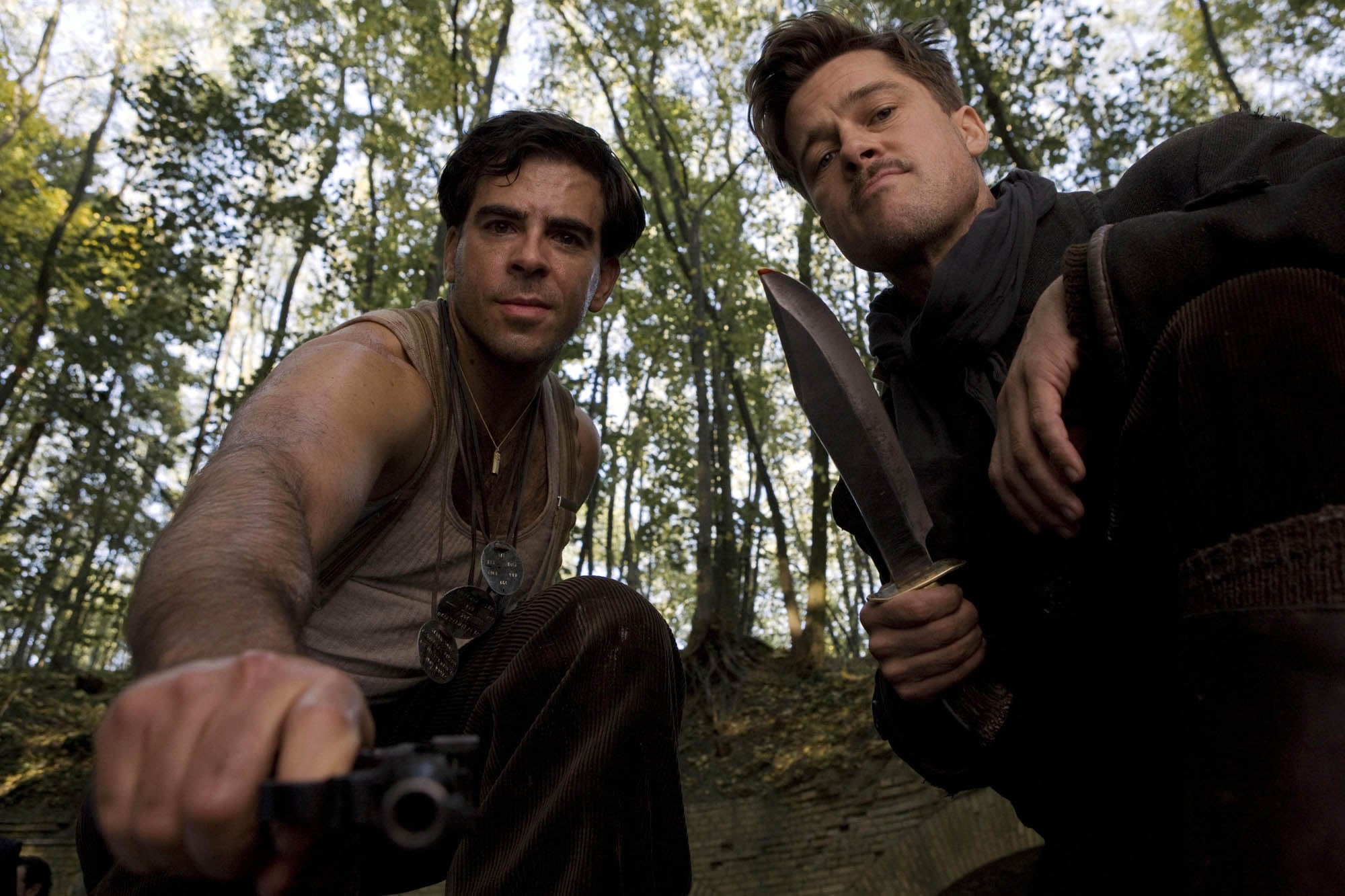
Quentin Tarantino’s World War II treatment is as bombastic as it is an accurate portrayal of Nazi Germany. The film, lathered with rich dialogue, is an action heist meets historical fiction, and features a cast for the ages — including Brad Pitt, Christoph Waltz, Michael Fassbender, Diane Kruger, and Daniel Brühl.
We Were Soldiers (2002)
Based on a book written by then-Lt. Col. Hal Moore (Mel Gibson), the film is carried by intense action sequences that give credence to the total disarray of the Vietnam War’s first major battle — Ia Drang. Moore, who during the battle was the commanding officer of 1st Battalion, 7th Cavalry Regiment, 1st Cavalry Division, earned a Distinguished Service Cross for his actions. He passed away in 2017 at the age of 94.
The Big Red One (1980)
“The Big Red One” follows five soldiers as they experience the toll of combat in World War II — notably, that survival isn’t always a reward. The film is based on director Samuel Fuller’s account of his days in North Africa serving with the 1st Infantry Division, which was nicknamed the “The Big Red One” after the division’s patch, one that remains an iconic symbol among Army uniforms.
Hamburger Hill (1987)
Based on the 101st Airborne Division’s push to take Hill 937, “Hamburger Hill” depicts the physical and mental exhaustion experienced by the battle’s participants. Despite sustaining massive losses in taking the hill, the U.S. abandoned the high ground only weeks after the battle concluded, prompting severe criticism of military leadership and a reassessment of overall war strategy.
Braveheart (1995)
Mel Gibson was at his finest as legendary Scottish warrior William Wallace. As he leads a rebellion of Highlanders against the English monarchy, themes of brotherhood, honor and sacrifice that have remained a human institution throughout the ages emerge, making this a truly timeless film.
Downfall (2004)
This meticulous account of Hitler’s final days is inspired by the real-life narrative of Traudl Junge, who served as the Nazi leader’s last private secretary from 1942 until his death in April 1945. Junge’s account offers a first-hand perspective of the maniacal dictator from the height of his power to his eventual unraveling in his underground bunker.
Hacksaw Ridge (2016)
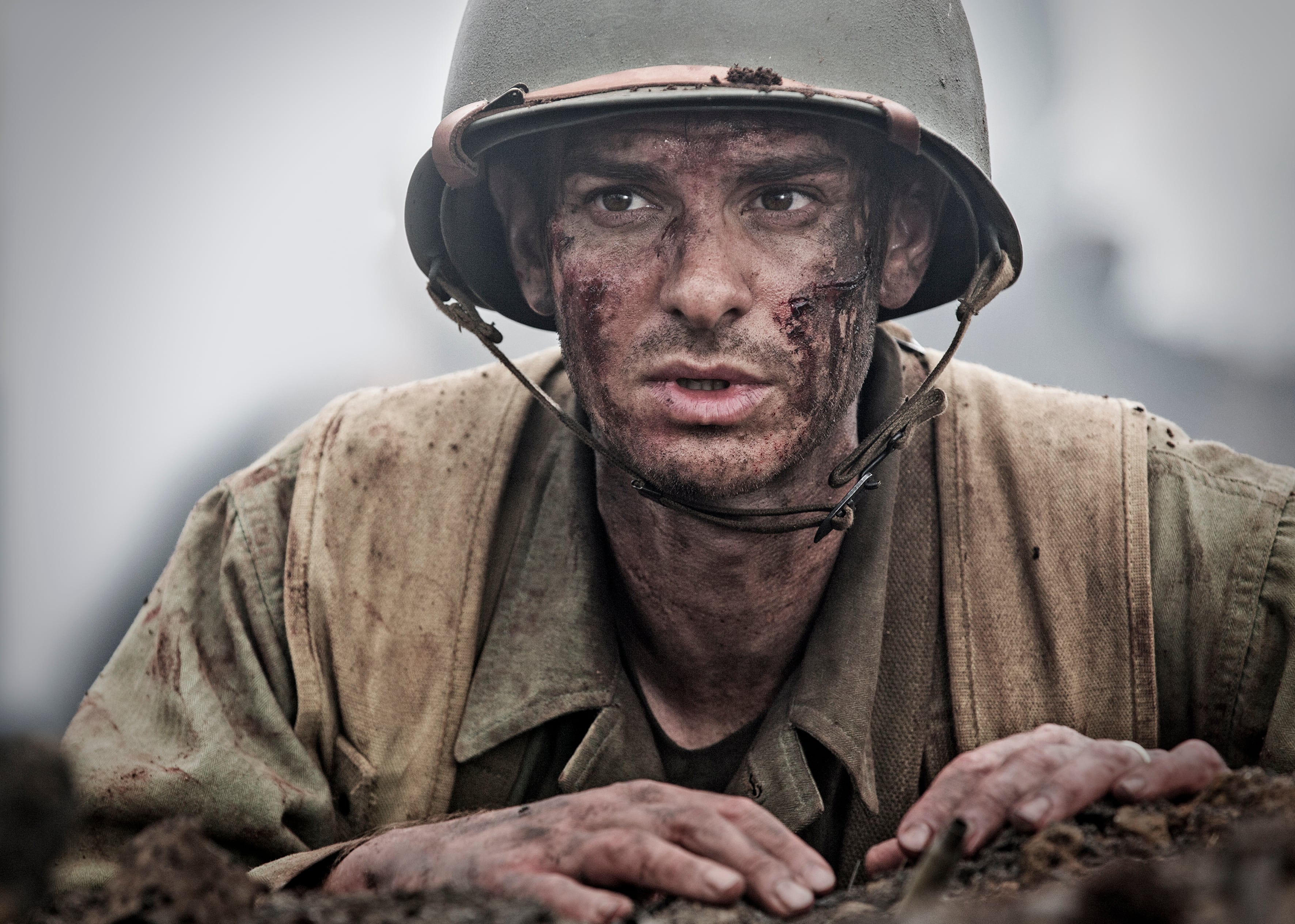
An inspired film about military service from the perspective of a conscientious objector, “Hacksaw Ridge” tells the story of World War II Army Medic Desmond Doss. Across numerous battles in the Pacific, Doss refused to kill due to his beliefs as a Seventh-day Adventist. He later received the Medal of Honor for saving numerous lives during the Battle of Okinawa.
Letters From Iwo Jima (2006)
Filmed by director Clint Eastwood as a companion film alongside “Flags of Our Fathers,” the film begins with a modern day discovery of buried letters recovered from the World War II battle site. The correspondence, which shapes the battle story from the Japanese perspective, pulls the curtain back on both the humanity and radicalization of individual Japanese soldiers.
Master and Commander (2003)
Still not nearly as celebrated as it should be, “Master and Commander” sets the standard for old-fashioned naval warfare on the big screen. Napoleon is at the height of his power in the early 1800s, when, under the command of Capt. Jack Aubrey (Russell Crowe), the HMS Surprise is tasked with pursuing a French war vessel near South America. Crowe and Paul Bettany lead a strong cast that bring the rigors of 1805 ship life to early 2000s audiences.
Bridge on the River Kwai (1957)
A World War II story, “Bridge on the River Kwai,” which took home a staggering seven Oscars, including Best Picture, explores the ferocious conditions experienced by captured British soldiers in a Japanese prison camp. The prisoners are tasked with building a railway bridge in Japanese-occupied Burma, unaware that a commando raid is imminent. Alex Guinness (“Star Wars”) stars.
Born on the 4th of July (1989)
The true story of Ron Kovic (Tom Cruise), gung-ho Marine turned anti-war activist, won Oliver Stone an Oscar for Best Director. In a firefight in Vietnam, Kovic mistakenly kills one of his own men. He’s then shot and left paralyzed from the chest down. Cruise, who was nominated for an Oscar for his performance, portrays Kovic’s collapse into depression, post-traumatic stress, alcohol abuse and horrifying stints at a veterans’ hospital.
The Dirty Dozen (1967)
Unlike a majority of the movies in this genre, “The Dirty Dozen” illuminates a darker side of military service with a bit of a bombastic plot line. Twelve (mostly criminal) soldiers are tasked with an assassination mission during World War II that is essentially suicidal. Lee Marvin, a Marine sniper and Purple Heart recipient in the Pacific theater in WWII, stars as the misfit group’s commander.
Fury (2014)
Titled after a crew’s Sherman tank, director David Ayer’s film essentially turns the armored vehicle into a character that serves as a metaphor for experience, gains and losses in war. The tank’s crew, helmed by “Wardaddy” (Brad Pitt) must find a way to survive the approaching end of World War II and live with the costly choices they make along the way.
Casualties of War (1989)
A young Michael J. Fox and Sean Penn square off in a moral struggle after Penn’s character takes a young Vietnamese teenager as a prisoner. The blurred lines depicted force the viewer to wrestle with the notion that the casualties referenced in the title extend well beyond troops in combat.
‘71 (2014)
Riots are ravaging Belfast at the height of the Troubles, and in the midst of the chaos a young British soldier (Jack O’Connel) gets separated from his unit. Unarmed, he must remain largely hidden amid the city’s confusion and violent turmoil to make it home in one piece.
Jarhead (2005)
A different entry when it comes to most war movie lists — but if you’ve ever wondered what it’s like to be a Marine, “Jarhead” has you covered. Jake Gyllenhaal stars as the crass Cpl. Anthony Swofford — a real-life Marine who wrote the memoir on which the film was based — in this Gulf War film that depicts both the monotony of service and the battle-fatigue experienced by many veterans.
Paths of Glory (1957)
Long before he directed “Full Metal Jacket,” a young filmmaker named Stanley Kubrick delivered an anti-war analysis, with World War I as its backdrop, of the collision between the ego and ambition of select leaders and the integrity of others — all while average soldiers endure the consequences. Kirk Douglas stars.
Zero Dark Thirty (2012)
This fictionalized depiction of the hunt for Osama bin Laden is a riveting character study featuring a spectacular performance by Jessica Chastain. Kathryn Bigelow, who won the Academy Award for Best Director for “The Hurt Locker,” helmed the film, which pulled the curtain back on the vast network of personnel, as well as the stroke of borderline madness, required to bring down the mastermind behind the worst terrorist attack in American history.
Three Kings (1999)
Set at the end of the Gulf War, David O. Russell’s (”The Fighter,” “Silver Linings Playbook”) film is an unexpectedly good war offering with a heist mission for Saddam Hussein’s hidden gold guiding the story. George Clooney, Ice Cube and Mark Wahlberg star in this brothers-in-arms story that seamlessly weaves between action, humor, politics, and drama.
Sarah Sicard is a Senior Editor with Military Times. She previously served as the Digitial Editor of Military Times and the Army Times Editor. Other work can be found at National Defense Magazine, Task & Purpose, and Defense News.
J.D. Simkins is the executive editor of Military Times and Defense News, and a Marine Corps veteran of the Iraq War.
In Other News








